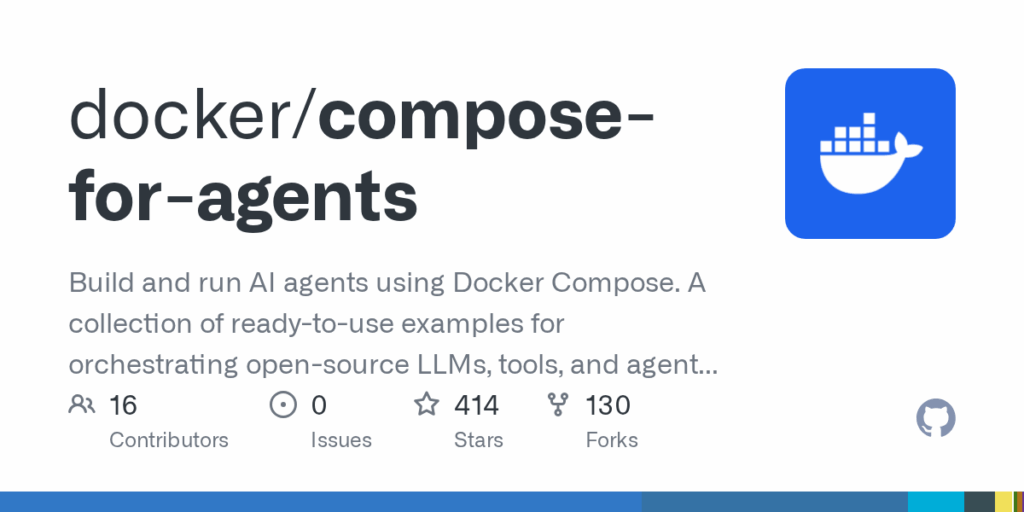compose for agents
Basic Information
This repository provides a curated collection of runnable demos that show how to build and run AI agent systems using Docker Compose. It bundles multiple self-contained example projects that demonstrate single-agent and multi-agent setups, orchestration of open-source and hosted models, and integration with Model Control Planes (MCPs) and external tools. The README documents prerequisites such as Docker Desktop or Docker Engine, GPU requirements or the Docker Offload alternative, and guidance for enabling GPU support and installing Docker Compose on Linux. Each demo directory contains compose files and optional secret examples. The repository also documents how to switch from running models locally with Docker Model Runner to using OpenAI by adding a secret API key file and using a compose.overlay file.








